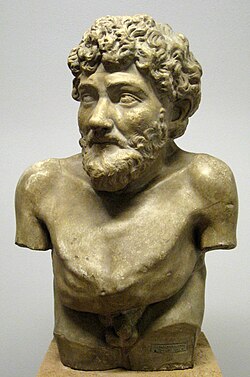Aesop Quote
Related Quotes
For everything in this journey of life we are on, there is a right wing and a left wing: for the wing of love there is anger; for the wing of destiny there is fear; for the wing of pain there is heali...
C. JoyBell C.
Tags:
ancient, flight, flying, human race, humanity, imperfection, inspirational, inspirational life, inspiring, journey
They took one look at me,And hated my black face.They took one look at me,And decided on my fate.They took one look at me,And forced an unknown fear.They took one look at me,And caused the shed of tea...
N'Zuri Za Austin
Tags:
acknowledge, all lives matter, black lives matter, bleed, bleeding, blood, conflict, erase, faith, harmony
About Aesop
Aesop ( EE-sop; Ancient Greek: Αἴσωπος, Aísōpos; c. 620–564 BCE; formerly rendered as Æsop) was a Greek fabulist and storyteller credited with a number of fables now collectively known as Aesop's Fables. Although his existence remains unclear and no writings by him survive, numerous tales credited to him were gathered across the centuries and in many languages in a storytelling tradition that continues to this day. Many of the tales associated with him are characterized by anthropomorphic animal characters.
Scattered details of Aesop's life can be found in ancient sources, including Aristotle, Herodotus, and Plutarch. An ancient literary work called The Aesop Romance tells an episodic, probably highly fictional version of his life, including the traditional description of him as a strikingly ugly slave (δοῦλος) who by his cleverness acquires freedom and becomes an adviser to kings and city-states. Older spellings of his name have included Esop(e) and Isope. Depictions of Aesop in popular culture over the last 2,500 years have included many works of art and his appearance as a character in numerous books, films, plays, and television programs.
Scattered details of Aesop's life can be found in ancient sources, including Aristotle, Herodotus, and Plutarch. An ancient literary work called The Aesop Romance tells an episodic, probably highly fictional version of his life, including the traditional description of him as a strikingly ugly slave (δοῦλος) who by his cleverness acquires freedom and becomes an adviser to kings and city-states. Older spellings of his name have included Esop(e) and Isope. Depictions of Aesop in popular culture over the last 2,500 years have included many works of art and his appearance as a character in numerous books, films, plays, and television programs.
